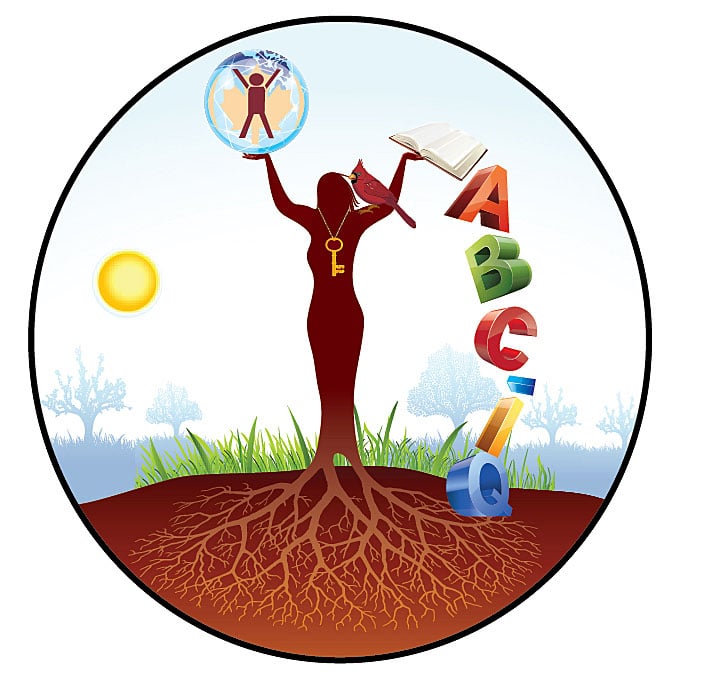Audio Review CV Portfolio Click on Load Conversation 12 Minute Podcast Review History
Mind Science Webinar Notes
Harnessing Mind Science and the Multiple Intelligences for Personal and Professional Growth
Tool Kit Core
1. "I AM ME"
Citation: Chuchmuch, S. D. (2024). I AM ME. ABC-IQ Publishing. Order Link: Order "I AM ME"
2. "E=ME2 A Unified Theory"
Citation: Chuchmuch, S. D. (2024). E=ME2 A Unified Theory. ABC-IQ Publishing. Order Link: Order "E=ME2 A Unified Theory"
4. "Subject Mind Science: 365 Days of Applying the Law of Attraction" Order Amazon Print Fulfillment Book Only
Book 1: Chuchmuch, S. D. (2017). Subject Mind Science: 365 Days of Applying the Law of Attraction.
ABC-IQ Global Management Solutions. Order Link Amazon Fulfillment : Order "Subject Mind Science" Digital With Explainer
5. "Rotation Stations: 40 More Lesson Plans"
Citation: Chuchmuch, S. D. (2024). Rotation Stations: 40 More Lesson Plans. ABC-IQ Global Management Solutions. Order Link: Order "Rotation Stations"
6. "ABC-IQ Existential Planners"
Citation: Chuchmuch, S. D. (2024). ABC-IQ Existential Planners. ABC-IQ Publishing. Order Link: Order "ABC-IQ Existential Planners" Amazon Kindle
Enroll Workshop Upgrade Inservice
Level Program
Shelley D. Chuchmuch's work, as described in the sources, focuses on addressing societal and educational challenges by advocating for a shift from traditional industrialized education models to a more holistic and personalized approach.
Societal Challenges Addressed: Teaching through other intelligences. Field experience.
Shifting Values and Cultural Discord: Chuchmuch observes that 21st-century societies face cultural discord due to shifting values, with an emphasis on capitalism, immediate gratification, and a decline in personal responsibility12. Her work emphasizes the importance of teaching values and emotional intelligence to counter these trends.
Impact of Technology: She acknowledges the benefits of technology but also highlights its negative impacts, such as social issues, communication gaps, and a decline in critical thinking skills56. Her proposed educational model, ABC-IQ, aims to integrate technology effectively while promoting critical thinking and problem-solving skills.
Economic Disparities: Chuchmuch's work delves into the contrasts between old-world and new-world economic systems and their societal implications910. She applies principles of Nash Equilibrium from game theory to address economic challenges and promote sustainable and peaceful economic models11.
Lack of Accountability: She criticizes the lack of accountability in modern society, where negative behaviors are often not addressed effectively12. Her work promotes a culture of responsibility, emphasizing the importance of holding individuals accountable for their actions.
Educational Challenges Addressed:
Outdated Education Models: Chuchmuch argues that current education systems are outdated and fail to meet the needs of 21st-century learners. She advocates for a move away from the 19th-century industrialized model that focuses on rote learning and standardized testing.
Standardized Testing and Elitism: She criticizes the emphasis on standardized testing, which she believes creates an academic caste system that labels children and does not adequately assess their true potential15. Her ABC-IQ model promotes personalized learning and assessment that recognizes diverse intelligences and learning styles7.
Neglect of Emotional Intelligence: Chuchmuch stresses the importance of emotional intelligence and its role in personal and societal well-being3. She calls for the inclusion of formal brain-training programs and practical education about emotions in school curricula.
Lack of Personalized Learning: She criticizes the impersonal nature of industrialized education, which prioritizes mass production over individualized attention6. Her work emphasizes the need for personalized learning experiences tailored to each student's unique strengths and needs.
Proposed Solutions:
Chuchmuch's proposed solutions center around her ABC-IQ education model, which aims to create a more holistic and personalized learning experience. Key elements of this model include:
Multiple Intelligences Education: Recognizing and nurturing the nine multiple intelligences as defined by Howard Gardner1416. This approach encourages the development of a wider range of skills and talents beyond traditional academic subjects.
Integration of Technology: Using technology effectively to enhance learning while promoting critical thinking and responsible use.
Mind Science and the Law of Attraction: Incorporating principles of mind science and the Law of Attraction to foster emotional intelligence, self-awareness, and personal growth.
Problem-Based Learning: Engaging students in real-world problem-solving scenarios that require collaboration, critical thinking, and the application of knowledge.
Focus on Values and Ethics: Integrating values education into the curriculum to address societal issues related to accountability and responsibility.
Chuchmuch's work presents a comprehensive critique of current societal and educational systems, offering concrete solutions for creating a more equitable, effective, and fulfilling learning experience for all individuals. Her emphasis on emotional intelligence, personalized learning, and a holistic approach to education aims to equip learners with the skills and values needed to thrive in a rapidly changing world.
What are the key themes in Chuchmuch's book, E=ME2?
Shelley D. Chuchmuch's book, "E=ME2: A Unified Theory," explores a multifaceted array of themes encompassing science, spirituality, education, economics, and personal growth.
Here are some of the key themes:
Interconnectedness of Science and Spirituality: The book challenges the traditional separation between science and spirituality, proposing a unified theory that bridges these realms12. Chuchmuch draws comparisons to intellectual giants like Einstein, Hawking, and Newton, suggesting that her work, like theirs, pushes the boundaries of human understanding. She integrates concepts from quantum physics, metaphysics, philosophy, theology, psychology, astrology, spirituality, and neuroscience to explore the nature of energy, consciousness, and reality.
●
E=ME2 Theorem: The central premise of the book is encapsulated in Chuchmuch's E=ME2 theorem, where energy (E) is a product of the mind (M) interacting with the environment (E2)45. This theorem suggests that individuals' perceptions and interactions with their surroundings shape their energy levels and experiences.
●
ABC-IQ Education Model: The book introduces the ABC-IQ system, Chuchmuch's proposed model for global education2. This system emphasizes personalized learning, emotional intelligence, and the recognition of multiple intelligences to address the shortcomings of the traditional industrialized education model. It aims to equip learners with the skills and values needed to thrive in the 21st century.
●
Mind Science and the Law of Attraction: Chuchmuch integrates principles of mind science and the Law of Attraction, suggesting that thoughts and emotions influence reality8910. She emphasizes the importance of positive thinking, gratitude, and creative visualization for personal growth and achieving desired outcomes.
●
Global Economics and Cultural Contrasts: The book provides a comparative analysis of old-world and new-world economic systems, highlighting the societal implications of economic choices. Chuchmuch draws from her experiences in 17 countries, including her time in the Arabian Gulf, to offer real-world insights into economic dynamics.
●
Navigating Cultural Diversity: Chuchmuch's narrative spans continents, offering readers a firsthand account of navigating diverse cultures2. She explores the intersection of faith, culture, and business, providing a practical guide for fostering harmony in an interconnected world.
●
Time as a Fluid Construct: Chuchmuch explores the nature of time, proposing that it's not linear but a dynamic construct influenced by human consciousness16. She connects time with concepts like circadian rhythm, the singularity chain, and the energy of thoughts and emotions.
These themes collectively present a holistic vision of human potential and the interconnectedness of all things. Chuchmuch encourages readers to embrace a new understanding of reality where mind, energy, and the environment are intertwined, and individuals have the power to shape their experiences through intentional thought and action.
How does Chuchmuch's E=ME2 theory integrate diverse knowledge systems?
Shelley D. Chuchmuch's E=ME² theory, which stands for Energy of Mind and Emotion creates Time as Thought in Motion Eternally, is presented as a unifying framework that integrates diverse knowledge systems, including science, spirituality, philosophy, and education123. Here's how the theory integrates these diverse systems.
Science: The Law of Attraction - Abraham Then - Abraham Now Integrating Subject Mind Science - The Learning Process, How does a Thought Become a Thing? Integrating Esther and Jerry Hicks Methods of Application Foundations Core
● Theory to Practice
Quantum Mechanics: The theory draws on concepts from quantum mechanics, particularly the idea of atomic entanglement and the interconnectedness of energy fields4. This aligns with the notion that thoughts and emotions, as forms of energy, can influence reality.
●
Neuroscience: Chuchmuch's work acknowledges the role of neural plasticity - the brain's ability to adapt and grow - in supporting the idea that mental and emotional states can influence physiological processes and personal development.
●
Physics: The E=ME² equation itself is a play on Einstein's famous E=mc², suggesting a parallel between the relationship of energy and mass in physics and the interplay of mind, emotion, and time in human experience6. Chuchmuch's work also references NASA's confirmation of an expanding universe through the Hubble Constant, connecting her theory to contemporary scientific discoveries and their implications..
●
Circadian Rhythms: Chuchmuch links her theory to the biological rhythms that govern human sleep-wake patterns, proposing that these rhythms act as a gateway through which consciousness interacts with time.
Spirituality:
●
Law of Attraction: Chuchmuch integrates the Law of Attraction, which posits that like attracts like in terms of energy and vibration. She argues that focusing on positive thoughts and emotions can attract positive experiences and outcomes.
●
Intuition and VERITAS: The theory highlights the importance of intuition as a guiding force, introducing the concept of VERITAS, defined as "Vibration Energy Reading Intuition Truths Accurate Sensor," suggesting that truth can be felt and accessed through an internal energy sensor located in the solar plexus.
●
Energy Healing: The theory is presented as a foundation for understanding and applying energy healing modalities, including biotechnologies which are described as ways to assess and balance the body's energy field.
Philosophy:
●
Mind-Body Connection: E=ME² emphasizes the interconnectedness of mind, body, and spirit, drawing on ancient philosophical traditions that recognize the influence of mental and emotional states on physical health and well-being.
●
Existentialism: Chuchmuch's work incorporates elements of existentialism, particularly the idea that individuals have the freedom and responsibility to create their own meaning and purpose in life19. Her educational model encourages self-reflection and exploration of one's values and beliefs.
●
Eastern Philosophies: Chuchmuch's research draws on Eastern philosophies, exploring the commonality between the teachings of figures like Buddha, Krishna, Abraham, Mohammed, and Jesus, seeking to bridge Eastern and Western perspectives.
Education:
●
Multiple Intelligences Theory: E=ME² integrates Howard Gardner's theory of Multiple Intelligences, recognizing that individuals learn and process information in diverse ways. The theory suggests that the energy of thought and emotion can be expressed and channeled through these different intelligences.
●
Personalized Learning: The theory advocates for a shift from industrialized education models to a more personalized approach that caters to individual learning styles and emotional needs
●
Holistic Education: E=ME² promotes a holistic approach to education, incorporating not only academic knowledge but also emotional intelligence, social skills, values, and ethical development.
By weaving together these diverse knowledge systems, Chuchmuch presents E=ME² as a comprehensive framework for understanding human potential and the interconnectedness of mind, body, spirit, and the universe. Her work challenges traditional boundaries between disciplines, advocating for an integrative approach to knowledge and personal development.


